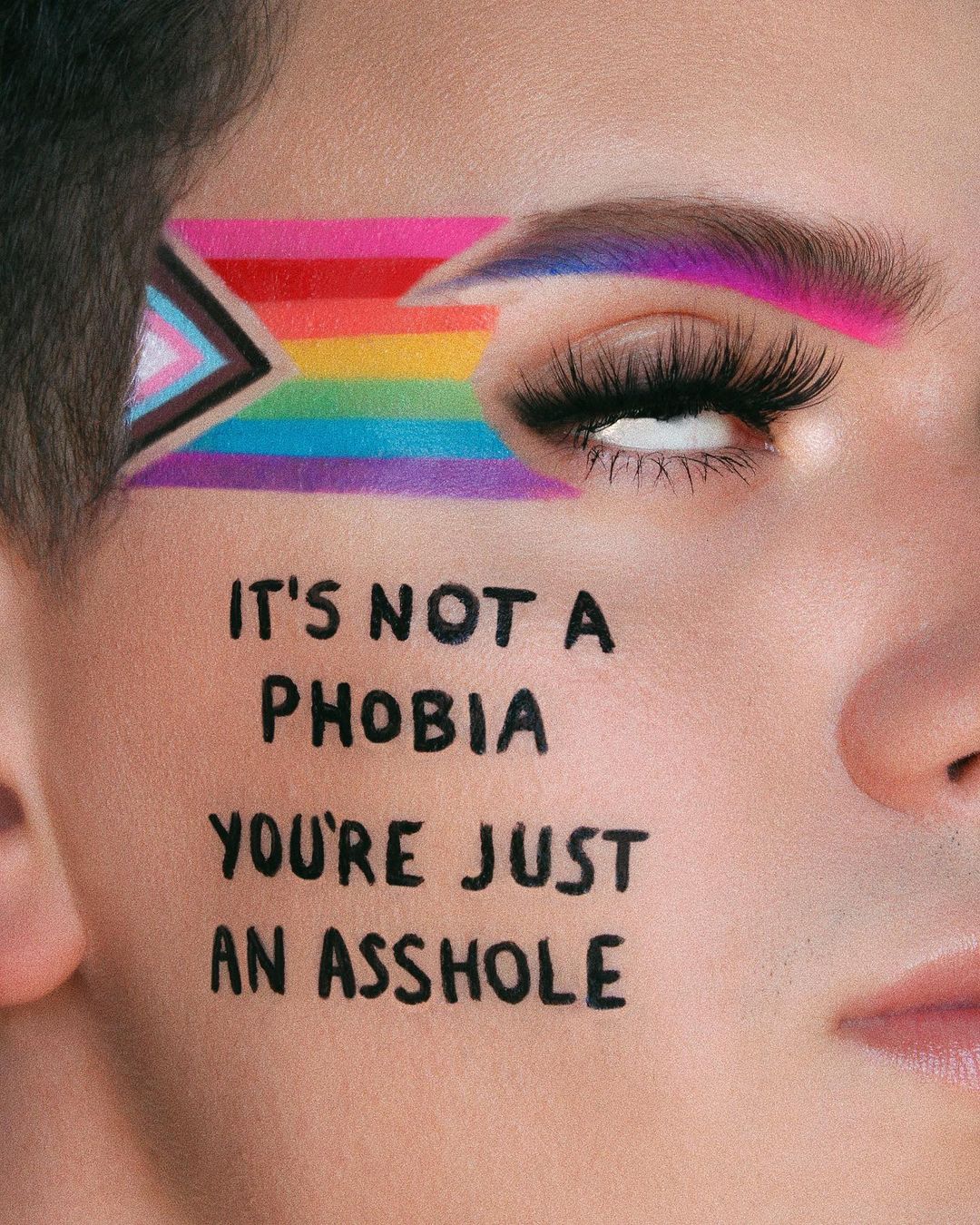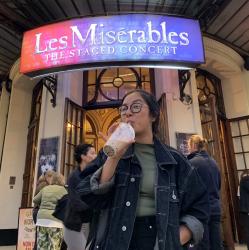
Life&Style’s Julia Lee argues that makeup does not devalue activism
One of the most prominent subsets of the social media ‘influencer’ is the beauty guru. There are YouTubers who create detailed talk-through tutorials and reviews, Instagrammers who draw elaborate pictures on their bodies that contribute to a curated feed, Tiktokers who transform from one look to another to popular music. Given the popularity of the genre and the central appeal being the creators’ personalities, it seems natural, even prudent, that some see it as a way to incorporate their non-makeup passions into their content. Fashion, movies, lifestyle– but why does activism through the medium stir up criticism of performativity and vanity?
In the past few years, Matt Bernstein (@mattxiv on Instagram) has become a recognisable figure in ‘influencer’ activism, particularly that of the queer community. They rose to prominence combining vibrant rainbow-coloured makeup with slogans and sayings such as ‘who I am is not a trend’ and ‘you don’t need to be out to be valid’. Matt frequently attaches to his posts relevant articles of and reactions to current events, anonymous personal accounts from his followers, and his take on the topic. While always aesthetically pleasing, there is no doubt that their content is informative and invaluable.
Subconscious misogyny is at play in the perception that activism through makeup is ‘less serious’
Over the years, people have drawn comics, created art, designed tote bags, T-shirts and pin badges as activism all the time. Would people find slogans weird or self-centred if it were any other medium? Subconscious misogyny is at play in the perception that activism through makeup is ‘less serious’. If the aim is drawing attention and raising awareness, there is little doubt of its effectiveness.
It is therefore clear to me that accusations of illegitimate or insincere activism is itself illegitimate. There is an important distinction to be made between similar criticism directed towards Instagram infographics, which often over-simplify a current issue into easy on the eye and easily shareable slides. Putting a face on the issue makes whatever information conveyed all the more intimate and personal, which does well to raise awareness. The very face accusations of vanity are levelled at is what draws you in.
The very face accusations of vanity are levelled at is what draws you in
Perhaps a factor that lends credence to the ‘narcissistic and shallow’ accusation is the static nature of Instagram, a platform used primarily for image sharing. This type of content may be distinguished from the more interactive YouTube. As a somewhat natural progression of ‘chit-chat get ready with me’ type videos, YouTubers who make beauty related content have started to incorporate their lives and interests into their content. Bailey Sarian’s ‘Makeup and Murder’ is a spin on the increasingly popular true crime genre. She has been criticised for trivialising tragedy by doing makeup while giving lighthearted and voyeuristic commentary to horrific crimes. Ignored however is the fact that most all true crime content is exploitative, not just those done by beauty personalities.
Mainstream outlets are treated as more ‘legitimate’ by the virtue of their platform, but they also profit off crime, often without consent from the victims. Those of Internet fame put their face on their content, and so are more easily targeted by the self-policing entity that is the Internet.
On the other hand, Fundie Fridays is a channel that ‘talks about fundamentalism while doing makeup’, keeping an audience through this consistent format. Makeup is treated as an activity to do while handling subjects of dark natures rather than minimising, making light or sensationalising them. Her videos are well rounded, well researched and informative– and that is what is most important. Doing your due diligence works in tandem with engaging the audience with your niche, here makeup. There is no flippancy that is necessarily tied to the act of putting colours and glitter on one’s face.
There is no flippancy that is necessarily tied to the act of putting colours and glitter on one’s face
Matt’s current Instagram has grown beyond queer issues to take on a current issues focus– still colourful, but observably makeup-less. It is difficult to say if the criticism he had attracted contributed to this shift, but with social media taking over as a news source (however ill-advised), the importance of ‘influencers’ like Matt is greater than we may realise.
Read more from Life&Style:
Is BeReal Bringing Back Authenticity of Social Media?
Male Improvement or Misogyny: How Do We Decide Who Deserves a Platform?

Comments